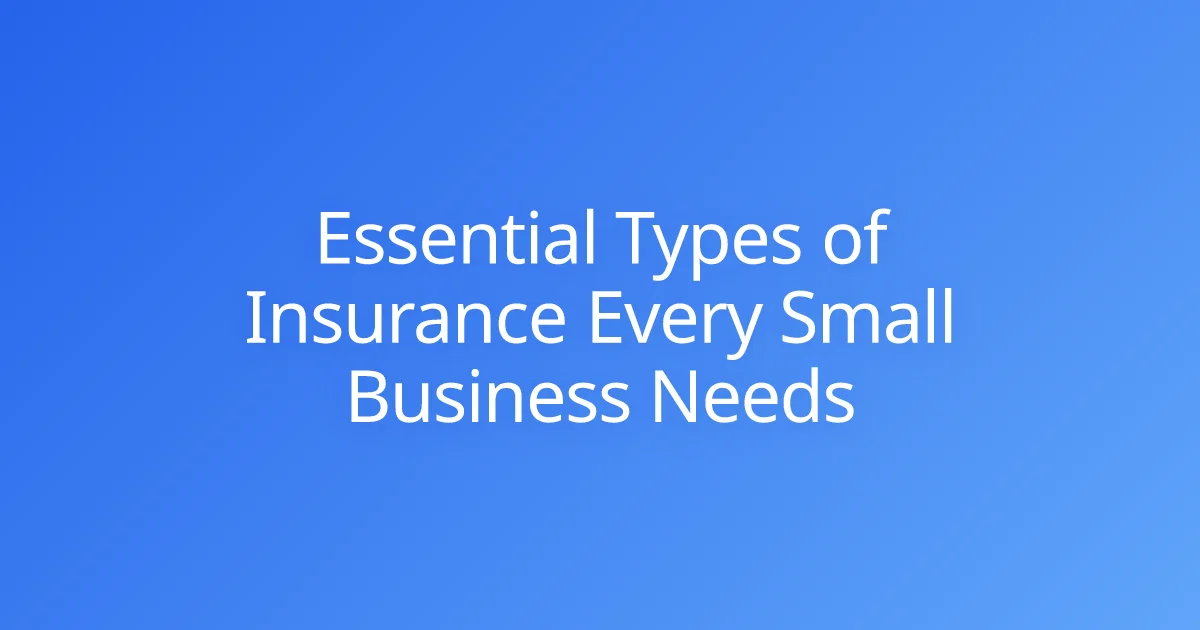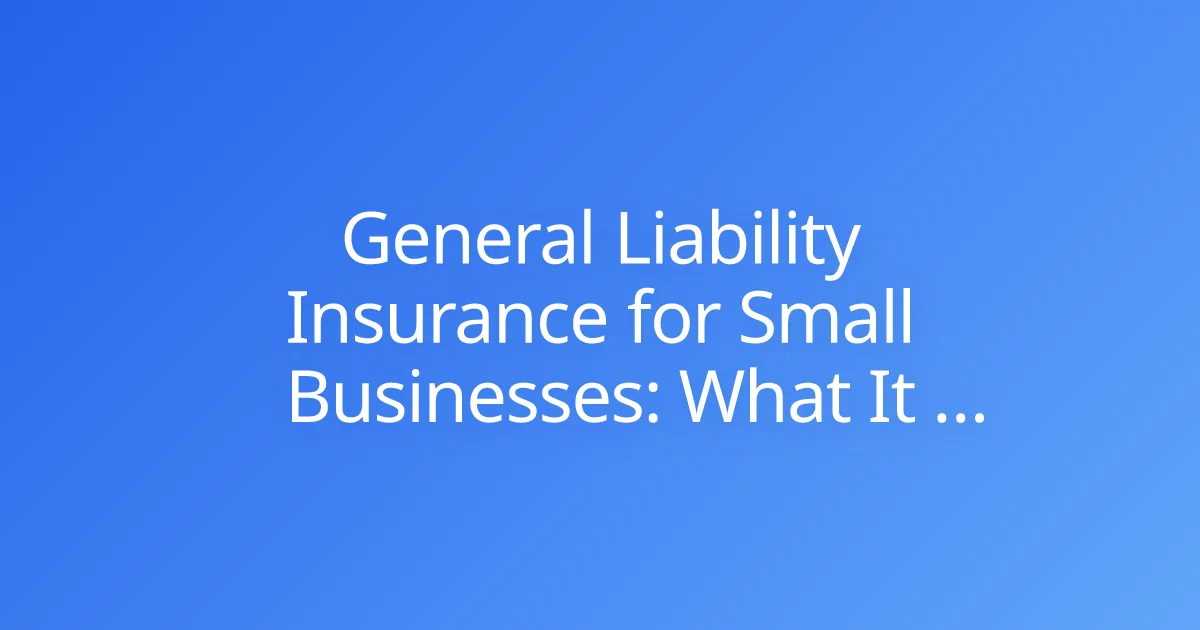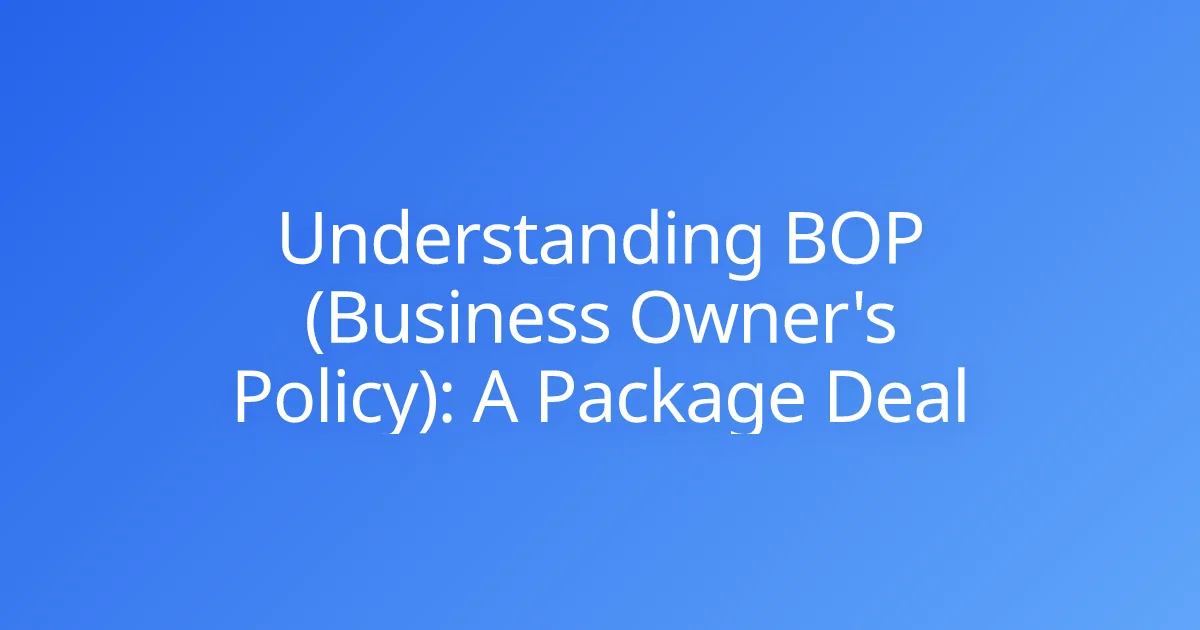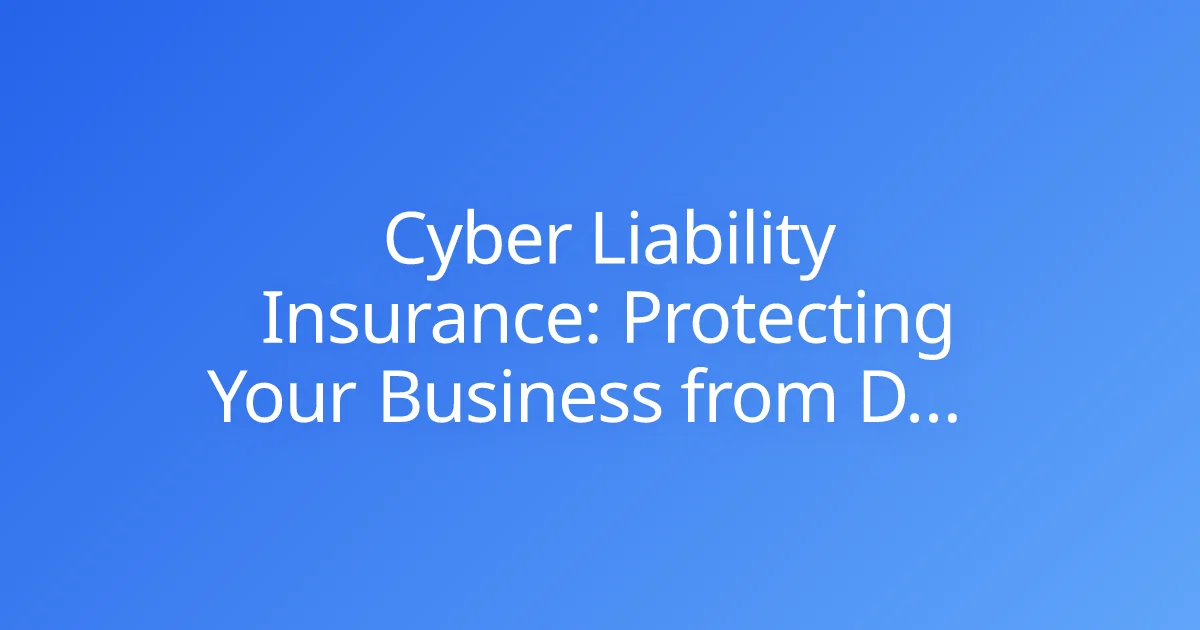Essential Types of Insurance Every Small Business Needs
The dream of launching a small business is often fueled by passion, innovation, and a desire for independence. Entrepreneurs pour their heart, time, and finances into building something from the ground up, focusing intensely on growth, operations, and customer satisfaction. Yet, amidst this dedication, a critical aspect often gets overlooked or underestimated: comprehensive small business insurance. Many mistakenly view insurance as an unnecessary expense rather than a vital investment, leaving their ventures vulnerable to unexpected disasters, lawsuits, or economic shocks that could derail everything.
At The Policy Explainer, we understand that simplifying complex concepts is key to empowerment. This guide is designed to clarify what types of insurance every small business needs to not only survive but thrive. We will illuminate the crucial role commercial insurance plays in managing risk, protecting your assets, and ensuring your business's longevity. By understanding these essential forms of coverage, you'll be able to make informed decisions that safeguard your hard work and provide invaluable peace of mind.
Why Small Businesses Can't Afford to Skip Insurance
Operating a small business inherently involves risk. Without adequate insurance, a single unforeseen event could lead to devastating financial loss, legal battles, and even bankruptcy.
Mitigating Financial Catastrophes
Every business, no matter its size or industry, faces potential threats: property damage, customer injuries, data breaches, or professional mistakes. These events can trigger substantial financial liabilities, including:
- Property repairs or replacement costs: If your office burns down or equipment is stolen.
- Medical bills and legal fees: If a customer is injured on your premises and sues.
- Lost income: If a disaster forces your business to shut down temporarily.
Small business insurance acts as a financial shield, covering these potentially ruinous costs and preventing them from wiping out your profits or personal assets.
Legal Compliance and Reputation
Many types of business insurance are not just smart choices; they are legal requirements. For instance, Workers' Compensation insurance is mandatory in most states for businesses with employees. Failing to comply can result in severe fines, legal action, and a damaged reputation. Beyond legal mandates, having appropriate coverage signals professionalism and responsibility to clients, partners, and employees, enhancing your business's credibility and trust.
Attracting and Retaining Talent
Providing benefits like Workers' Compensation demonstrates a commitment to employee safety and well-being. Knowing they are protected in case of a workplace injury can be a significant factor in attracting and retaining skilled talent, fostering a more secure and productive work environment.
Foundational Insurance Every Small Business Must Consider
These are the core types of commercial insurance that most small businesses will need to cover their basic operations and liabilities.
1. General Liability Insurance (GL)
Often called "slip and fall" insurance, General Liability (GL) insurance is a broad form of coverage that protects your business from common claims of bodily injury or property damage that occur as a result of your business operations.
- What it Covers:
- Bodily Injury: If a customer slips and falls in your store.
- Property Damage: If your employee accidentally damages a client's property while on a job.
- Personal and Advertising Injury: Claims of libel, slander, copyright infringement, or false advertising.
- Medical Payments: Covers medical expenses for injuries sustained by non-employees on your premises, regardless of fault.
- Why it's Essential: Even careful businesses can face unexpected incidents. GL protects you from costly lawsuits and settlements that could otherwise bankrupt your company.
2. Commercial Property Insurance
This coverage protects the physical assets of your business, from your building to your inventory.
- What it Covers:
- Your Business Property: The physical structure of your building (if you own it).
- Business Personal Property: Equipment, inventory, furniture, fixtures, and supplies, whether owned or leased.
- Perils: Typically protects against common perils like fire, theft, vandalism, and storm damage (excluding floods and earthquakes, which usually require separate policies).
- Why it's Essential: A fire, burst pipe, or break-in could destroy your ability to operate. Property insurance ensures you can rebuild or replace essential items.
3. Business Interruption Insurance
Often included as part of a commercial property policy or a Business Owner's Policy (BOP), Business Interruption insurance is vital for maintaining continuity.
- What it Covers:
- Lost Income: Replaces the income your business would have earned if it had not experienced a covered peril (e.g., fire, storm).
- Ongoing Expenses: Covers operating expenses like rent, utilities, and payroll that continue even when your business cannot operate.
- Temporary Relocation Costs: Helps pay for moving to and operating from a temporary location.
- Why it's Essential: Even with property insurance, your business needs funds to stay afloat during recovery. This coverage helps you weather the storm and reopen.
Protecting Your People: Employee-Related Coverage
If your small business has employees, specific insurance types become critical, not just for protection but often for legal compliance.
4. Workers' Compensation Insurance
Almost all states require businesses with employees to carry Workers' Compensation insurance.
- What it Covers:
- Medical Treatment: For employees injured or made ill on the job.
- Lost Wages: Partial replacement of income for employees unable to work due to job-related injuries or illnesses.
- Rehabilitation Costs: If an employee requires physical therapy or other rehabilitation services.
- Death Benefits: Paid to dependents if an employee dies due to a work-related incident.
- Why it's Essential: It protects both employees by providing benefits and employers by limiting their liability for workplace injuries, often preventing costly lawsuits.
5. Professional Liability Insurance (Errors & Omissions - E&O)
Also known as Errors & Omissions (E&O) insurance, this coverage is crucial for businesses that provide professional services or advice.
- What it Covers:
- Claims of Negligence: If a client alleges you made a mistake or failed to provide a promised service.
- Errors or Omissions: If your advice or service resulted in a financial loss for your client.
- Breach of Contract: Related to professional services.
- Who Needs It: Consultants, accountants, IT service providers, real estate agents, graphic designers, architects, and any professional offering advice or services.
- Why it's Essential: Even highly competent professionals can make mistakes or face baseless accusations. E&O covers legal defense costs and damages.
6. Cyber Liability Insurance
In today's digital landscape, a data breach is a significant risk for any business that handles customer data, even if it's just names and email addresses.
- What it Covers:
- Cost of Data Breach Response: Notification to affected customers, credit monitoring, forensic investigation, public relations.
- Legal Fees and Fines: Related to regulatory compliance and lawsuits stemming from a breach.
- Ransomware Payments: In some cases, to recover hijacked data.
- Business Interruption: Due to a cyber attack.
- Why it's Essential: Small businesses are often targeted by cybercriminals because they may have weaker defenses than large corporations. A breach can destroy customer trust and lead to crippling costs.
Specialized Coverage: Beyond the Basics
Depending on your industry and specific operations, your small business may benefit from additional, more specialized types of insurance.
Commercial Auto Insurance
If your business owns or uses vehicles for operations (e.g., delivery vans, company cars for sales reps), Commercial Auto Insurance is necessary. Personal auto policies typically exclude coverage for business use.
- What it Covers: Bodily injury and property damage liability, collision, comprehensive, and uninsured/underinsured motorist coverage for business-owned vehicles.
Directors and Officers (D&O) Insurance
This protects the personal assets of your company's directors and officers against lawsuits alleging wrongful acts in their capacity as managers. Important for businesses with a board or multiple leaders.
Employment Practices Liability Insurance (EPLI)
EPLI covers claims related to employment practices, such as wrongful termination, discrimination, harassment, and retaliation. As your team grows, so does your exposure to these risks.
Commercial Umbrella Insurance
Provides an extra layer of liability coverage above the limits of your other primary liability policies (General Liability, Commercial Auto, Employer's Liability). It kicks in when the limits of your other policies are exhausted by a large claim.
How to Determine Your Business Insurance Needs
Choosing the right business insurance is not a one-size-fits-all endeavor. It requires careful assessment and expert guidance.
Assess Your Risks
Thoroughly evaluate your business operations:
- Industry: Some industries are inherently riskier than others.
- Location: High-crime areas, flood zones, or areas prone to natural disasters.
- Physical Assets: Value of your building, equipment, and inventory.
- Services Provided: Are you giving advice? Handling sensitive data? Working on client property?
- Employees: Number of employees, their roles, and potential workplace hazards.
- Customer Interaction: How much foot traffic do you have? Do you provide services in homes?
Consider Your Business Structure
Your legal structure (sole proprietorship, LLC, corporation) affects your personal liability, which in turn influences your insurance needs. For instance, an LLC provides some personal asset protection, but insurance remains crucial for business liabilities.
Consult an Expert
The best way to ensure you have the right coverage is to work with a qualified commercial insurance agent or broker. They can:
- Identify specific risks: Help you pinpoint unique exposures in your industry.
- Recommend appropriate policies: Guide you through the various options.
- Customize coverage: Tailor policies to your specific needs and budget.
- Compare quotes: Help you find competitive rates from various insurers.
Review and Update Regularly
Your business is dynamic. As it grows, evolves, or changes operations, your insurance needs will change too. Schedule an annual review with your agent to ensure your policies remain adequate and cost-effective.
Conclusion
Securing the essential types of insurance is not merely a box to check off for your small business; it's a fundamental investment in its resilience and future. From protecting against common liabilities with General Liability insurance and safeguarding your physical assets with Commercial Property insurance, to ensuring employee well-being with Workers' Compensation and defending against modern threats like cyber attacks, a robust business insurance portfolio provides an invaluable safety net. By proactively understanding and addressing your unique risks, you empower your venture to weather unforeseen challenges and continue on its path to success. Do you have more questions about tailoring a policy to your specific industry or finding the right balance between coverage and cost?



